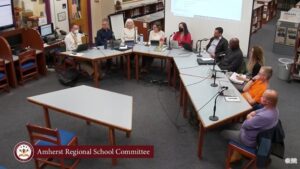Legal battle brews over prayer club rejection at Washington state school
Two elementary students in Washington state are taking a stand against religious discrimination after their proposal to start an interfaith prayer club was rejected by the school’s principal.
The…

Two elementary students in Washington state are taking a stand against religious discrimination after their proposal to start an interfaith prayer club was rejected by the school’s principal.
The rejection came just a week after the same principal approved a “Pride” club.
The students and their parents argue through nonprofit legal group First Liberty Institute that the school has violated their rights under the First Amendment’s free exercise of religion and free speech clauses.
The students, identified by First Liberty as L.A.W. and J.W., wanted to start a prayer club after school to provide other religious students a place “where they feel safe and welcome,” according to the legal firm. L.A.W. and her mother met with Creekside Principal Amy Allision twice in February to express their interest in starting the after-school prayer club.
Despite their offering to have the club be student-led and providing solutions for potential logistical issues, the principal refused their request.
“Principal Allison told L.A.W. that she could not have an interfaith student prayer club, but that L.A.W. “could fill out an application to pay to use the school after school; I would allow that,”” First Liberty Institute alleges.
“When L.A.W. asked why she would have to pay as an outside group when there are other student clubs who don’t have to pay, Principal Allison responded, ‘I am sorry, [L.], I just can’t tell you what you want to hear,’ and ‘we can’t allow it.””
On March 8, Allison told the students “the process of establishing clubs for this school year has ended as of the end of October.”
Yet, Allison had permitted a Pride Club to begin the same month L.A.W and J.W. requested their interfaith prayer club to begin meeting.
The legal battle escalated when First Liberty Institute sent a letter to the school principal requesting “the immediate approval of L.A.W. and J.W.’s request to start an interfaith prayer club.”
Indeed, the letter drew renewed attention to First Liberty’s successful Supreme Court case involving Coach Joseph Kennedy’s free exercise of religion. The Seattle-area man lost his assistant football coaching position simply for kneeling in silent prayer at games. He got the job back, thanks to First Liberty.
“As the Supreme Court’s holding in Kennedy v. Bremerton School District made clear, the First Amendment protects the ability of students and employees to express their faith in public schools,” the letter reads. “The Court in Kennedy explained that the clauses of the First Amendment ‘work in tandem.’
“These First Amendment protections extend to elementary school students expressing their sincere religious beliefs through voluntary clubs – including L.A.W. and J.W. Yet the Issaquah School District flouted its First Amendment obligations when Creekside refused to allow a student-led interfaith prayer club.
“Its unlawful action violates both the Free Exercise Clause and the Free Speech Clause.”
The letter then addresses the issue of having the students pay extra for the use of school facilities, claiming it as an “unlawful sidestep of the law’s requirements.”
“As the Supreme Court has repeatedly held, religious clubs must be afforded the same recognition, access, and rights as other noncurricular clubs,” the letter reads.
The law firm gave the principal a two-week deadline to respond to its request, threatening legal action if assurances were not provided.
“This is a time-sensitive matter. No later than April 22, 2024, please provide your written assurances that the Issaquah School District and Creekside Elementary School will approve our clients’ request to start a prayer club and permit the club to begin meeting no later than April 29, 2024,” the letter states.
“If we do not hear from you and receive those assurances by that time, we will proceed as our clients direct, likely pursuing all available legal remedies.”



